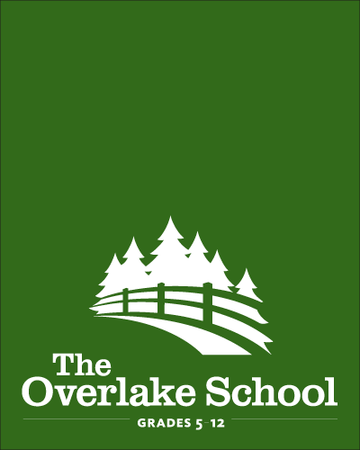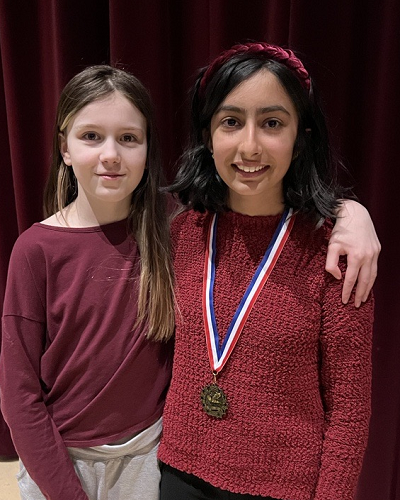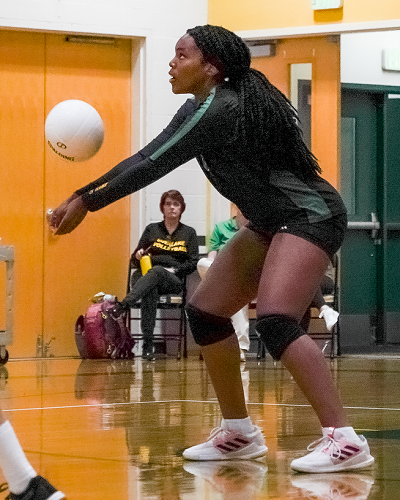Radical Empathy: The Class of 2020 Experience

The class is simply listed as English 401.
It's a Senior class called Radical Empathy, and the Class of 2020 is getting a real life lesson with it. The elective class explores central questions surrounding what it means to engage meaningfully in the world and what we pursue in our lives and in daily interactions. "The class wasn’t originally designed to connect with the coronavirus, but there have been some connections that emerged throughout the year," explains English Chair Nate Edmunds, who teaches the class.
Last fall, the Radical Empathy students collaborated with Lisa Orenstein's Global Health Science class where they read Station Eleven while studying the Ebola outbreak. Edmunds says that team examination of the spread of an infectious disease prepared the students to think about empathy in a real-life scenario both on an individual and societal level. "Little did Lisa and I know that, only a month or so later, that very situation would be playing out around the world," says Edmunds. "The students came up with some incredible ideas about how to prepare for and respond to a pandemic. Frankly, their recommendations in their final presentations are things that our leaders could really take to heart."
Since distance learning began, the students have been reading and discussing Sonali Deraniyagala's memoir Wave. The author recounts how she survived a 2004 tsunami in Sri Lanka but lost her entire family in the disaster. Senior Bella S. says that early in the class they learned to look beyond the definition of empathy and understand the value of taking a step back and admit that they may not be able to relate to what a person is going through. "Nate encouraged us to not try and force connections that may not be there between our lives and Deraniyagala's and instead focus on listening to her story as she wants it to be heard. This mentality has and will continue to influence the way I think about people's stories and the value of learning about experiences I can't even begin to imagine."
Edmunds admits that from this moment on, his students will find the connection between the novels, short stories, essays, and poems. "A tsunami and a pandemic are not the same, but there are certainly parallels in terms of the stresses they put on individuals and communities, and what I’ve tried to do is encourage the students to consider how the questions we’re asking about the memoir parallel the questions we can ask about our current situation."
Through the discussions and reflective writing, the Edmund's goal is to push students to develop their reading, writing, and discussion skills and think more deeply about their own experiences now so they'll be prepared for the challenges they encounter in the future.
Senior Lucas B. says it's had a real impact on him through assigned "Empathy Posts" where students write and then share their thoughts. "I’ve noticed a pattern in my posts where I tend to establish a clear-cut, universal description of empathy only to completely throw it out a couple of months later—usually because of some questions brought up by class discussions or works we’ve read," says Lucas. "Perhaps the takeaway is that empathy—as with morality, ethics, and other related concepts—has no concrete definition and is instead plastic, requiring an ever-evolving definition. As we actively redefine our understandings of empathy, we get closer and closer to what empathy actually is."
Recent news reports highlight that lack of empathy when spring breakers flaunt their partying on beaches in Florida, rather than concern for protecting the health of the overall community. While that may make headlines, there are many positive Generation Z stories coming from our students.
The Class of 2020 has had its share for several years. It's an elderly woman who grabs a student's arm at a retirement home and thanks the musicians for playing a recital. It's a line of students serving meals to the homeless under I-5 in downtown Seattle. It's the refugee child who clings to the side of an Overlaker who volunteers at ReWA.
Now the Class of 2020 is going through its own hardship and pain. Each student's experience may be different, but it's pretty safe to assume their experience is highly unlike ours. How we respond to them and our community is a lesson from which we can all learn. But with Overlake's Seniors, we're in pretty good hands.
Enjoy spring break!


